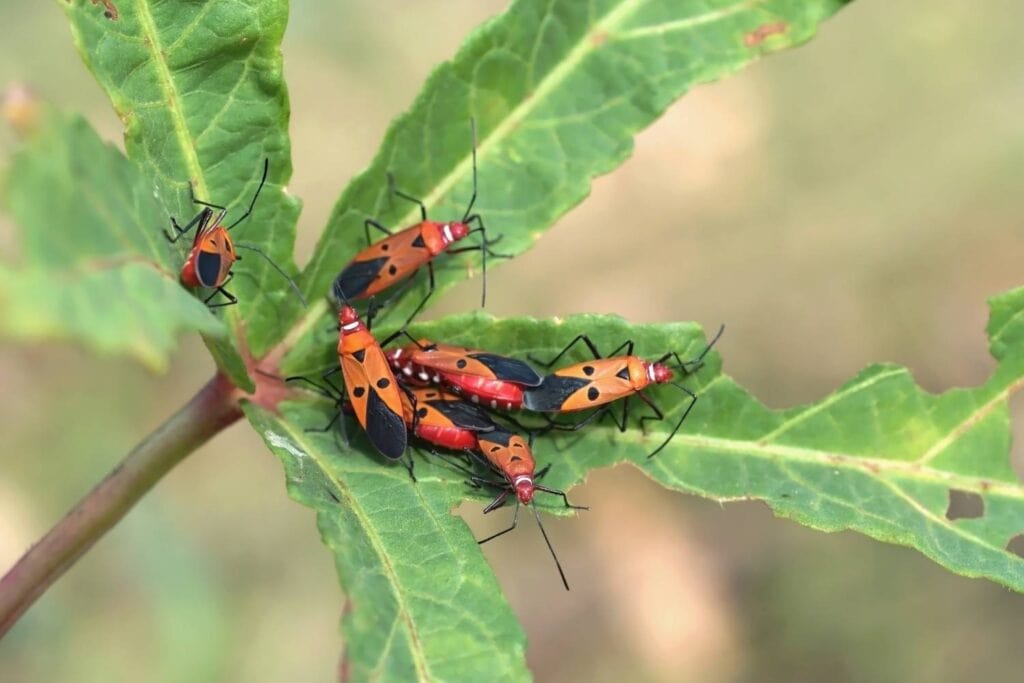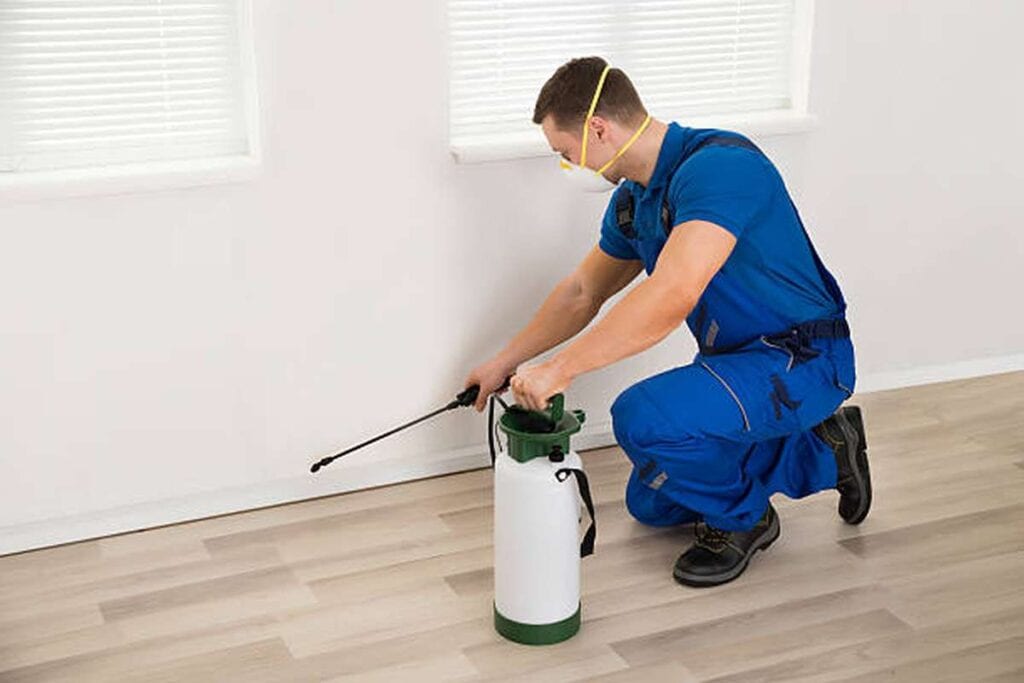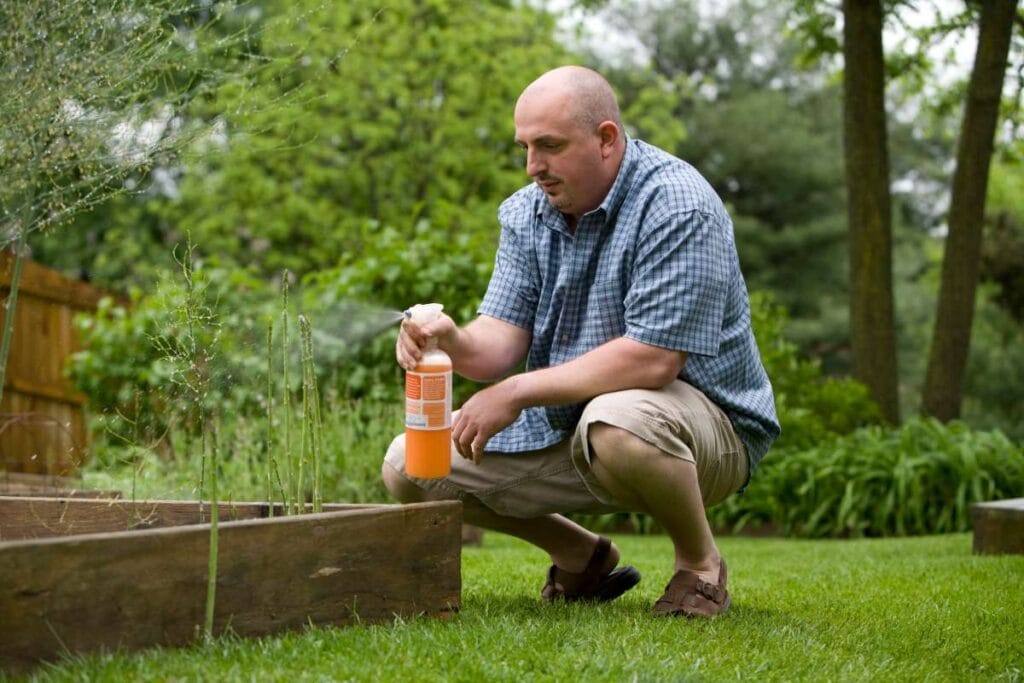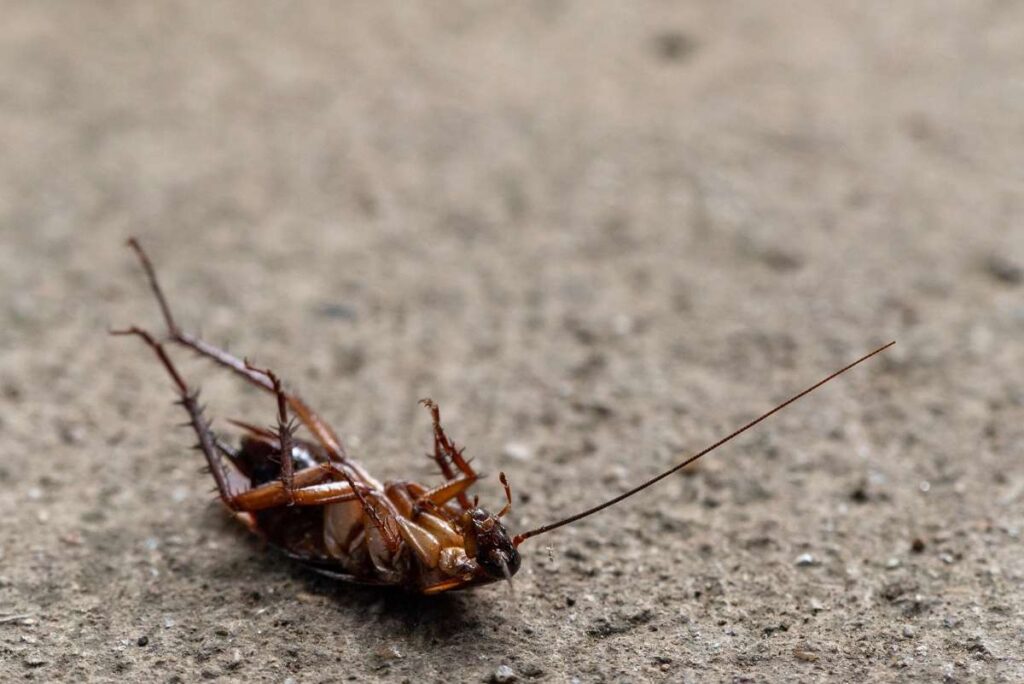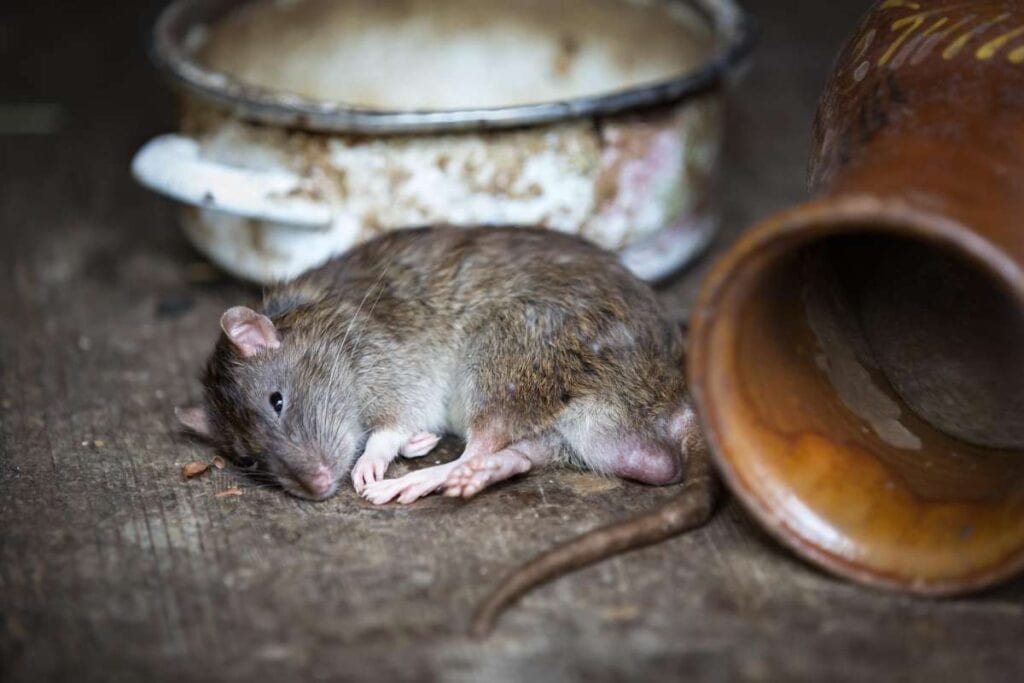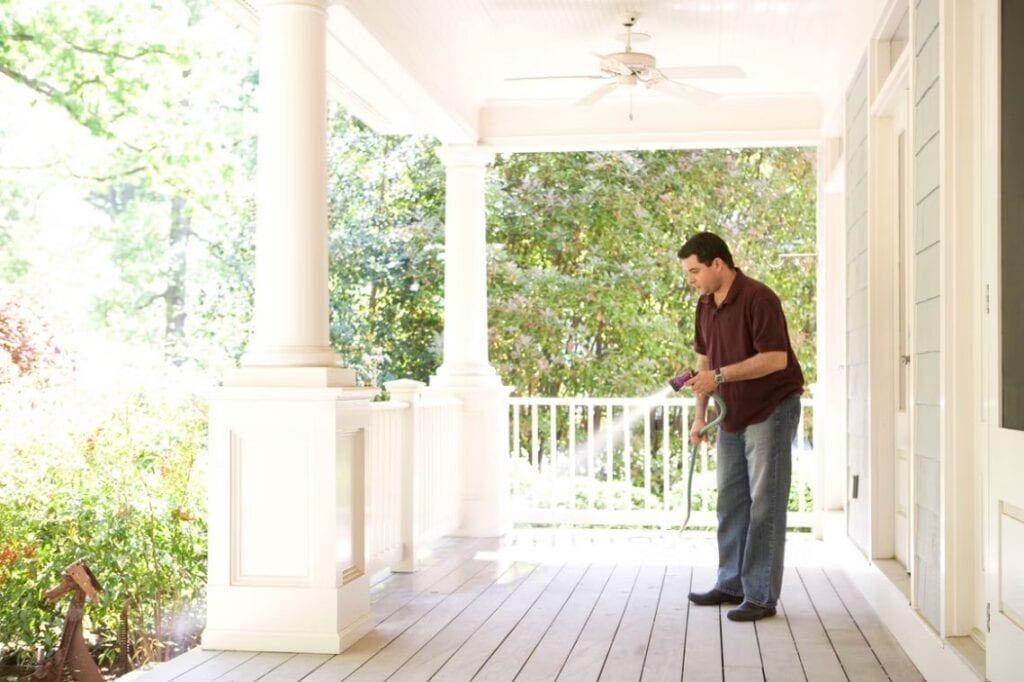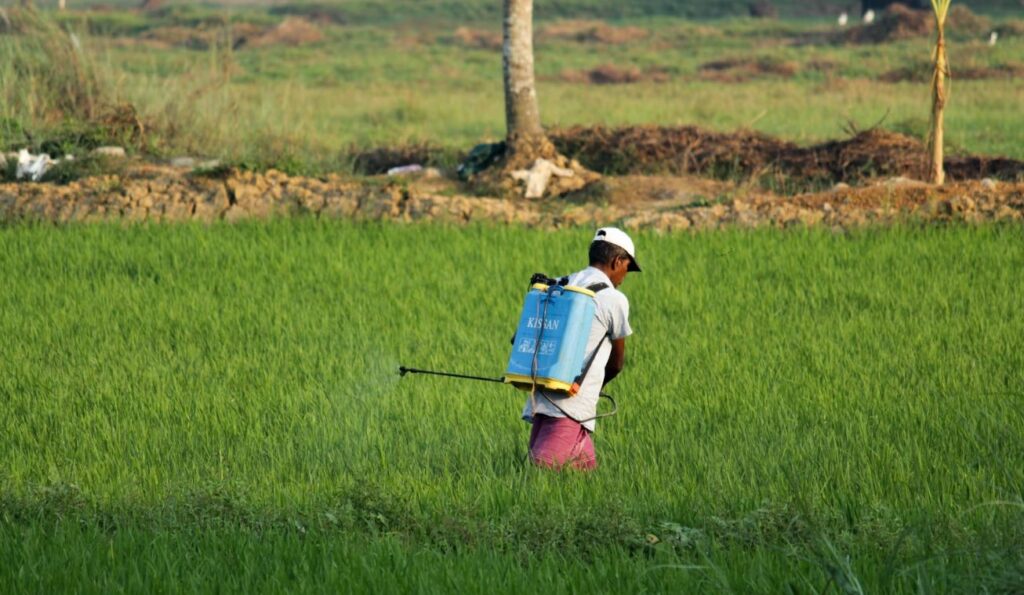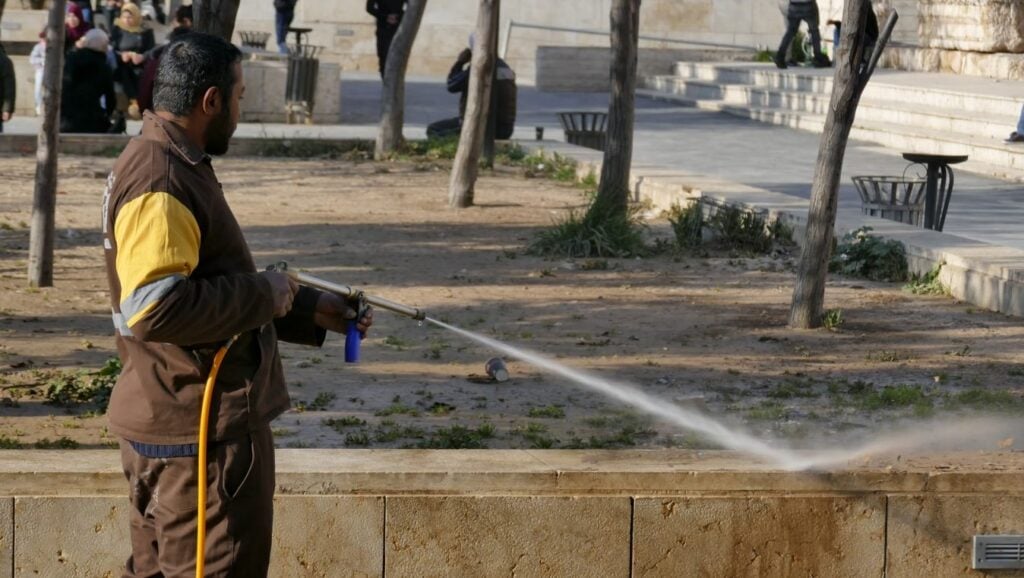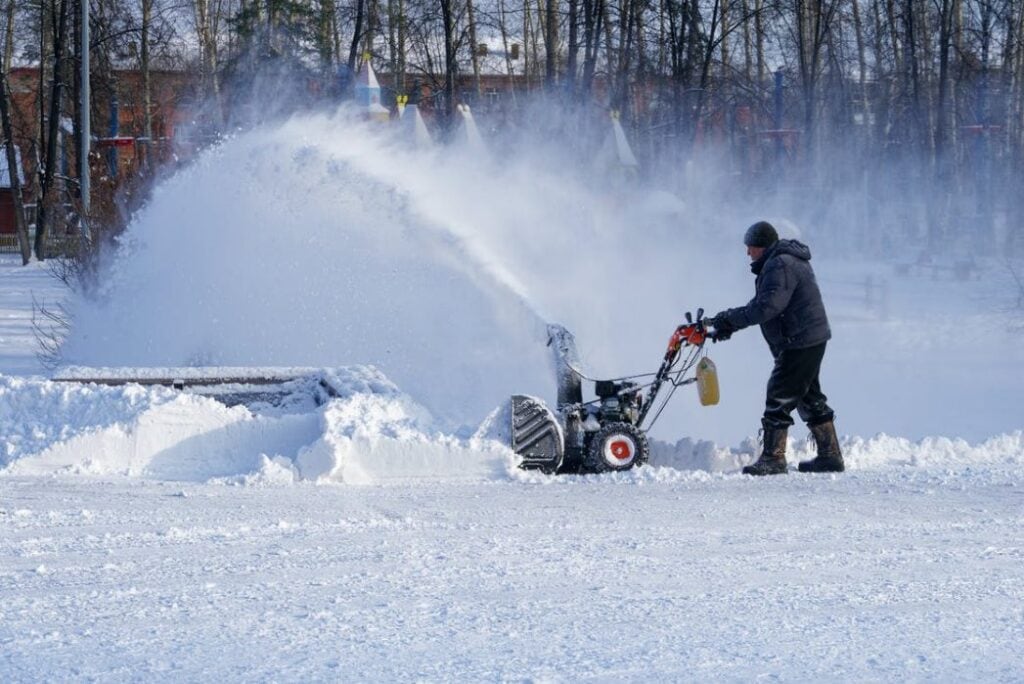The hottest part of summer has arrived, and the weather quickly becomes HOT. Vacations, backyard barbeques, pool parties, and, unfortunately, an abundance of pests are all part of this season. All sorts of insects, from termites and bugs to ants and wasps, appear to relish the summer season as much as the rest of us.
Due to their inability to produce body heat, see-through bugs do best in warm climates. The sun's beams are vital to their survival. Here to help if you've determined a lot of the size of castles or swarms of mosquitoes in your yard rather recently. Here are some things you can do to be ready for these annoying summertime pests:
What Makes Pests So Common During The Summer?
Let's take a look at both types of unwanted pests. As a first point, let's think about rats. When the weather turns chilly, a lot of rodents seek refuge indoors. As a result, you could start to see them in the cooler months of fall and winter.
Having a reliable source of food and water, a comfortable and secure place to live, and a warm climate increase the likelihood that they will breed, much like other mammals. Consequently, spring is a more prolific breeding season for many plants.
Although rodents can survive the cold, bugs have a far harder time. No insect can produce its thermal energy. On the contrary, they can't do without the sun's heat. Consequently, their numbers increase as the weather gets warmer. Even in these extreme weather circumstances, they stay alive and thrive.

Identifying Common Summer Pests
The arrival of summer is often accompanied by pests, much like the arrival of spring and flowering shrubs. Pest populations grow substantially throughout the summer due to the favourable conditions for pest reproduction brought about by the warmer temperatures and higher humidity. Summer is a wonderful season for most people, but the abundance of bugs that come with it may be rather annoying.
The plague-like bug populations that follow summer can be a major bummer, even though summer is supposed to be a happy season. Insects, roaches, and other pests are abundant in the summer, and they will only let you enjoy your barbeque or get a good night's sleep once they've devoured all the food in your cupboard.
To avoid the many problems that might arise from an infestation, it is recommended that you take precautions before the "pest season" begins. If you start preparing early enough, you should be able to keep these pesky invaders at bay until the hot season ends and the danger of pests decreases.
Below are a few summertime pests to watch out for and some suggestions for keeping them away.
Mosquitoes
Regarding the amount of diseases they transmit, these pests are among the most deadly on the planet. Mosquitoes transmit various diseases, including Dengue fever, Zika virus, and malaria.
As soon as the temperature warms up in the spring, mosquito season begins, and it reaches its climax in the heat of the summer. Mosquito populations can explode as eggs placed at other times hatch and long-dormant mosquitoes emerge from their lairs.
Ants
You will have encountered ants if you have resided in Australia for longer than a day. In Australia, ants are by far the most prevalent kind of bug. With over 1300 species and subspecies known to exist, you're practically likely to come face-to-face with these bugs, especially during the summer when their numbers multiply exponentially.
Ants are generally helpful in their natural habitat but may be a major pain when invading a home. Hot weather surges the country's ant population, which already numbers in the thousands (more than 1,300 species and types of ants).
Ants generally benefit ecosystems but seriously threaten humans when they swarm people. Although they rarely bite (except for a few species), they can taint and damage food, making it unsafe to eat. Nothing is more unsettling than feeling little bugs creep over your flesh.
Ants like the outdoors, but they are fearless in venturing inside. They will come rushing into your house to gorge themselves when they smell food.
Flies
The health risks posed by flies are real, and they're also very tenacious. Fly feeding habits are among the worst since they are so indiscriminate. Their dangerous conduct is the main reason why humans should be worried about them. In their jumps from food source to food source, flies frequently bring pathogens on their hairy bodies, which they transmit wherever they land.
A fly infestation might quickly spiral out of control due to the bugs' ability to multiply rapidly, particularly in warm weather. In or out of the house, they pose a threat.
Rodents
Rats and mice are cunning pests that, if uncontrolled, may wreak havoc on your home. Damage and infection can result from their voracious chewing on wiring, furniture, clothes, and food.
Furthermore, fleas and other parasites can be brought into your home by rodents like rats and mice. Due to their rapid increase, it is difficult to bring an infestation under control after it has already begun.
Fleas
You and your animal partner will spend much time outside during the summer, which may put your furry pet at risk of contracting fleas. Because fleas consume the blood of all animals, including humans, a flea infestation will upset you and your pet. Fleas feed on the blood of all animals, including humans.
In addition to transmitting diseases through their painful bites, fleas are also capable of transmitting diseases through their blood when they come into touch with the blood of their host when they are feeding.
Ways For Homeowners To Get Ready For Summer Pests
Homeowners are preparing for summertime activities, such as spending more time outside and hosting backyard barbeques, as the warmer months approach. But pests aren't exactly welcoming guests, so people should be careful.
Some pests, such as ants and spiders, are dangerous to your home. Most people merely find them annoying.
Secure Your Home.
Sealing off any potential entry points is the first line of defence against pests in your house. Inspect the area surrounding your doors and windows for any holes that should be sealed, and if the window stripping is damaged, replace it.
Find any screens that have holes in them and fix or replace them. During the night, letting the cool wind in is usually a pleasant experience; however, you must ensure that you are prepared to keep the insects away.
Maintain Your Yard
When you let bugs roam free in their natural environment, they will ultimately find their way into your home. The best way to avoid this is to keep your yard clean and free of pests so they don't have a place to breed.
Eliminate bug hiding places and breeding grounds by clearing away yard waste or rubbish piles. When bushes and trees become overgrown, they provide pests like spiders, ants, and flies an easy way to get into your house.
Eliminating these entry holes and creating a barrier against the invasion of pests can be accomplished through the routine trimming of bushes and trees. Maintaining a tidy yard can reduce the likelihood of pest infestations developing on your property.
Take Care Of Your Trash
When disposing of meat waste during the summer months, it is especially vital to practice caution. While having a routine for bringing out the garbage is important, it is also important to exercise caution.
Keep meat scraps indoors if you don't have a garbage collection scheduled within 48 hours; otherwise, they will decompose too quickly in the hot weather. Due to the decomposition process, many undesirable insects and other pests may find your yard an ideal breeding site.
The risk of insect infestation can be reduced, and a cleaner, safer outside space can be created for you and your family if you are cognisant of correct trash disposal methods and take precautions to avoid them.
Prioritise Cleaning Up.
One easy way to keep pests at bay is to clean your home. Keep your home exceptionally clean and organised during the hot months to avoid becoming a haven for pests. Pests are drawn to three things: water, food, and shelter.
Many different kinds of insects like to congregate in kitchens, and when food is left out or not properly sealed, the space becomes a veritable bug nursery. For food to remain fresh longer, use airtight containers or purchase smaller servings that can be consumed sooner. You can prevent crumbs and spills in your kitchen and dining area by sweeping the floors regularly and wiping down the tables and counters before each use.
Remove Any Standing Water
Eliminating mosquito breeding places is an important step in preventing mosquito infestations. Find any standing water where mosquitoes might deposit their eggs and get rid of them by doing routine inspections.
Keep an eye out for puddles in the low sections of your yard, around your air conditioner, and the rain spouts. You should empty your dog's water dish regularly and keep your children's toys indoors so they don't get wet. Think about putting suitable drainage solutions in trouble spots and draining birdbaths.
Eliminating potential mosquito breeding grounds can reduce mosquito populations, the incidence of mosquito bites, and diseases carried by mosquitoes. This will allow you and your family to spend more time outdoors in comfort and safety.
Inspect Your Pets
During the summer, it is common for pets like cats and dogs to bring unwanted bugs into the home. Make it a habit to check them for ticks daily. Carefully pluck them out immediately if you come across any. Putting all your pets on flea-prevention medicine is a good idea. If you've ever tried to rid your home of fleas, you know how difficult it is. Prevent them from ever taking root to spare yourself the trouble.
Proper Storage For Your Firewood
Termites can inflict severe harm to the structure of your home if they can penetrate the firewood that is located nearby. Termites are a major pain but can compromise your home's structural stability. Keep at least five feet of space between your woodpiles and any buildings you own or rent to lessen the likelihood of this happening.
Consider positioning the woodpile further away from the house than the five-foot limit, a minimum guideline. Further prevention of termite infestation and preservation of wood quality is achieved by storing firewood on high racks away from the ground.
Maintain Your Kitchen Clean.
As the weather warms, pests like roaches, ants, and termites may seek shelter inside homes. You can prevent them from discovering any by maintaining the highest possible level of cleanliness in your kitchen. A bug's hunger can be sated as little as a crumb on the floor or counter.
As soon as you are finished with the food you have prepared or eaten in the kitchen, clean the floors, wipe down the counters, and put the food away as soon as you are finished. Taking your trash outdoors at least once every few days is another wonderful advice you should not overlook.

Use A Preventive Approach To Pest Control.
Have a supply of items, such as pesticides, traps, and repellents, before you ever have a serious pest problem in the summer. Whatever your pest problem, a wide selection of pest control options exist.
Using only plant-based substances, Essentials provides a full range of treatments to eliminate particular types of insects. You may trust the products, supported by more than 65 years of study on insects, to eliminate any pest problem, whether bugs, cockroaches, house flies, mites, or spiders Purcell. If you want the best results, read the label and do as it says.
Ensure You Do Not Bring Pests Inside
It is common for kids to abandon their toys outdoors, where they might become covered in dirt and other pollutants. Wash or wipe them down with a damp cloth before bringing them inside.
Establishing that some toys are only allowed indoors might help you save time and energy when it comes to maintaining and cleaning your play area. You can keep children's outdoor play areas clean and safe by sorting items according to their intended use. This will also cut down on cleaning time. Keeping children's outdoor toys clean and well-maintained makes them last longer and improves their playtime.
Conclusion
Summer is a time of increased outdoor activities, backyard barbeques, and pool parties, but it also brings an abundance of pests. Common summer pests include termites, bugs, ants, and wasps, which thrive in warm climates due to the sun's beams. To prepare for these pests, homeowners should take precautions before the "pest season" begins and prepare early enough to keep them at bay until the hot season ends and the danger of pests decreases.
Mosquitoes are among the most deadly pests on the planet, transmitting diseases like Dengue fever, Zika virus, and malaria. Ants, the most prevalent type of bug in Australia, can cause significant damage to food and homes when they swarm people. Flies pose health risks due to their indiscriminate feeding habits and can quickly spiral out of control due to their rapid multiplying ability.
Rodents, such as rats and mice, can cause damage and infection by chewing on wiring, furniture, clothes, and food. They can also bring fleas and other parasites into your home due to their rapid increase. Fleas consume the blood of all animals, including humans, and can transmit diseases through their painful bites and blood contact with their host.
Homeowners should be cautious about pests during the summer season, as they are not always welcoming guests. Some pests, such as ants and spiders, are dangerous to your home, while others, like ants and spiders, are simply annoying. By taking precautions and being prepared for summer pests, homeowners can enjoy the benefits of the summer season while also protecting their property.
To prevent pest infestations, secure your home by sealing off potential entry points and replacing damaged window stripping. Keep your yard clean and free of pests to prevent them from breeding. Regularly trim overgrown bushes and trees to create a barrier against pest invasion. Dispose of meat waste carefully during summer months, keeping it indoors to prevent decomposition and reduce the risk of insect infestation.
Maintain your home clean and organised during hot months to avoid becoming a haven for pests. Use airtight containers or purchase smaller servings to keep food fresh longer. Regularly sweep floors and wipe down tables and counters before each use. Remove standing water and keep an eye out for puddles in low sections of your yard, around your air conditioner, and rain spouts. Empty your dog's water dish and keep children's toys indoors to prevent wetness.
Inspect pets daily for ticks and flea-prevention medicine to prevent flea infestations. Store firewood away from buildings and keep at least five feet of space between woodpiles and buildings. Maintain kitchen cleanliness by cleaning floors, wiping down counters, and disposing of trash outdoors.
Use a preventive approach to pest control, such as using pesticides, traps, and repellents. Essentials provides a full range of treatments to eliminate specific types of insects, supported by over 65 years of study on insects.
Ensure children do not bring pests inside by washing or wiping down their toys before bringing them inside. Sorting items according to their intended use can save time and energy when maintaining and cleaning play areas. Keeping children's outdoor toys clean and well-maintained will make them last longer and improve their playtime.
Content Summary
- Summer in Australia brings scorching temperatures and an increase in pests.
- From termites and bugs to ants and wasps, pests thrive during the hot summer months.
- See-through bugs flourish in warm climates, relying on the sun's beams for survival.
- Early detection of mosquito swarms or termite castles in your yard is crucial.
- Rodents seek refuge indoors when the weather turns chilly, making fall and winter risky.
- Warm climates, a reliable food source, and a secure habitat increase rodent breeding in spring.
- Insects struggle in the cold, thriving as the weather warms, leading to increased numbers.
- The summer abundance of pests can dampen the joy of the season for many.
- Pest populations surge in summer due to favourable conditions for reproduction.
- Mosquitoes, notorious disease carriers, thrive in the heat, reaching their peak during summer.
- Australia's vast population multiplies exponentially in the summer, with over 1300 species.
- Ant invasions can be unsettling, with the pests infiltrating homes in search of food.
- Flies pose health risks as they carry pathogens on their bodies, multiplying rapidly in warm weather.
- Rats and mice can wreak havoc on homes, causing damage and transmitting parasites.
- Fleas pose risks to both humans and pets, feeding on blood and transmitting diseases.
- Homeowners preparing for summer should be cautious of pests, which can be dangerous or merely annoying.
- Sealing potential entry points is the first line of defence against pests in your home.
- Maintaining a clean yard prevents pests from finding breeding grounds and entry points.
- Proper trash disposal reduces the risk of insect infestation and creates a safer outdoor space.
- Prioritising cleaning helps keep pests away by eliminating water, food, and shelter sources.
- Eliminating standing water prevents mosquito breeding grounds, reducing populations and diseases.
- Regularly inspecting pets for ticks and using flea-prevention medicine helps prevent infestations.
- Proper storage of firewood away from buildings reduces the risk of termite infestations.
- A clean kitchen minimises hiding places for roaches, ants, and termites during warmer weather.
- Having a supply of pest control items before a serious problem arises is a preventive approach.
- Using plant-based substances in pest control treatments provides effective and eco-friendly solutions.
- Ensure children's toys are cleaned before bringing them inside to prevent pests from entering.
- Establishing rules for indoor-only toys helps maintain a clean and safe play area for children.
- Keeping outdoor play areas organised and cleaned reduces the time and effort spent on maintenance.
- Sorting items according to their use minimises cleaning time and keeps outdoor toys in better condition.
- Summer activities like barbeques and pool parties can attract pests, requiring homeowners' vigilance.
- Pest control measures should include inspecting doors, windows, and damaged window stripping.
- Regular trimming of bushes and trees creates a barrier against pests and reduces entry points.
- Disposing of meat waste carefully during summer prevents attracting unwanted pests to the yard.
- Routine cleaning, sweeping, and wiping down surfaces in kitchens reduce the risk of bug infestations.
- Eliminating potential breeding sites for mosquitoes, such as puddles and water dishes, is crucial.
- Pesticides, traps, and repellents should be on hand before a serious pest problem arises.
- Essentials, with over 65 years of insect research, provides effective plant-based pest control options.
- Reading and following product labels ensure the best results when using pest control treatments.
- Keeping children's outdoor toys clean and well-maintained enhances their durability and playtime.
- Abandoned toys outdoors can collect dirt, so wiping them down before bringing them inside is essential.
- Establishing rules for designated indoor toys helps streamline cleaning efforts in play areas.
- Organising children's play items by use reduces cleaning time and keeps outdoor spaces tidy.
- Clean and well-maintained outdoor toys contribute to longer lifespans and improved play experiences.
- Summer pests can disrupt outdoor enjoyment, necessitating proactive measures for homeowners.
- Maintaining a secure home environment includes inspecting screens for holes and fixing them promptly.
- Regular yard maintenance, including clearing away yard waste, reduces hiding places for pests.
- Proper trash disposal practices contribute to a cleaner and safer outdoor environment.
- Pest prevention measures, like sealing entry points and maintaining cleanliness, are key to a pest-free home.
- Early preparation and vigilance can help homeowners enjoy a pest-free summer season in Australia.
Frequently Asked Questions
To prevent mosquitoes from breeding around your home, eliminate standing water sources such as clogged gutters, flower pots, and bird baths. Keep your lawn trimmed and remove any debris or objects that can collect water. Additionally, consider using mosquito repellents and installing screens on windows and doors to keep mosquitoes out of your living spaces.
To deter ants from entering your home:
- Maintaining cleanliness by wiping surfaces, sweeping floors, and storing food in sealed containers.
- Seal cracks and crevices around windows, doors, and entry points to prevent ants from gaining access.
- Consider using ant baits and deterrents to discourage ant activity around your property.
If you encounter a wasp or hornet nest on your property, it's important to exercise caution and avoid disturbing the nest. Contact a professional pest control service to remove the nest and eliminate the threat of stings safely. Do not attempt to remove the nest yourself, as this can provoke aggressive behaviour from the insects and lead to potential injuries.
Yes, there are several natural remedies for controlling summer pests. For example, planting mosquito-repelling plants such as citronella, lavender, and marigolds can help deter mosquitoes from your outdoor living spaces. Similarly, vinegar or essential oils like peppermint and tea tree oil can be natural repellents for ants and flies. However, it's essential to research and use these remedies safely and effectively.
You should consider seeking professional pest control services for summer pests if you experience persistent infestations or your efforts to control pests are ineffective. Professional pest control technicians have the expertise and resources to identify the root cause of the infestation and implement targeted treatments to eliminate pests safely and effectively.

